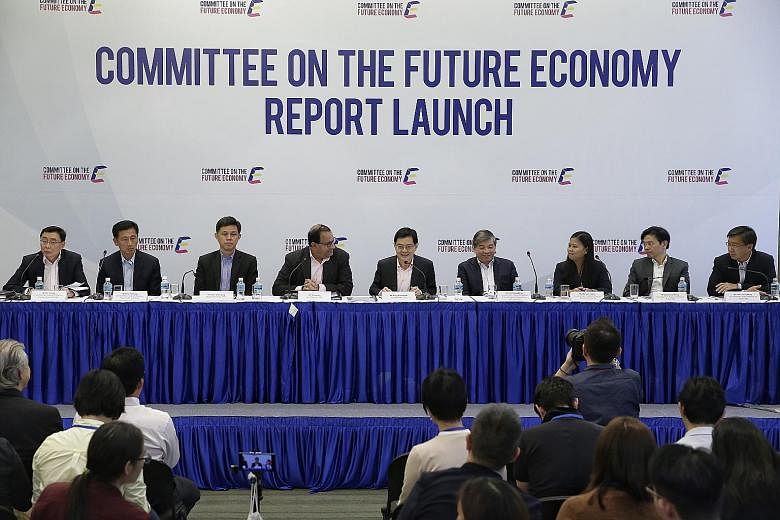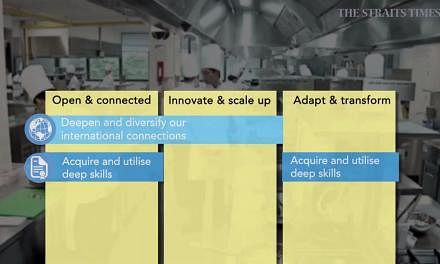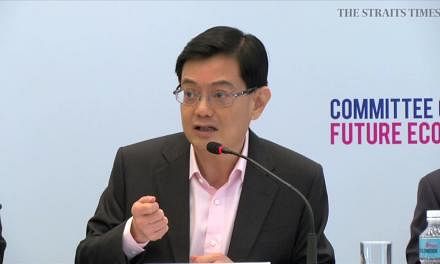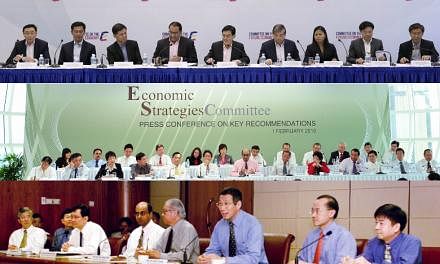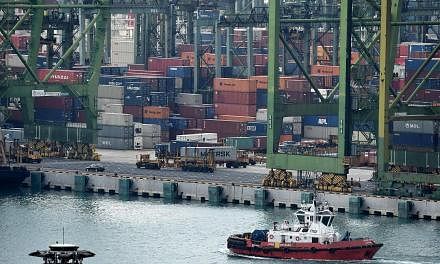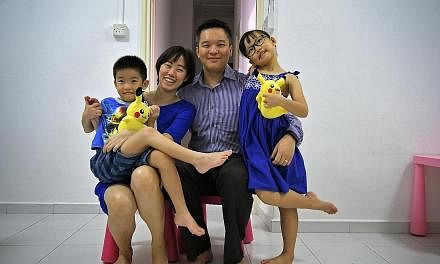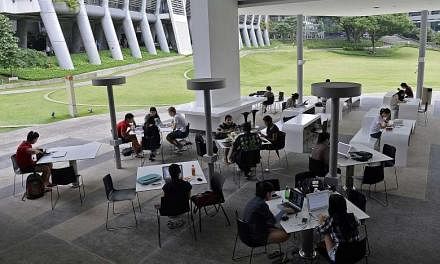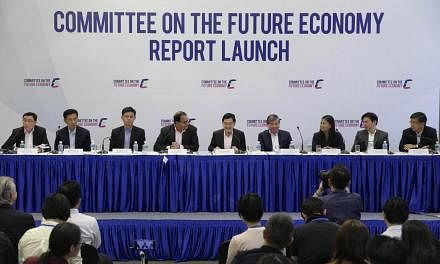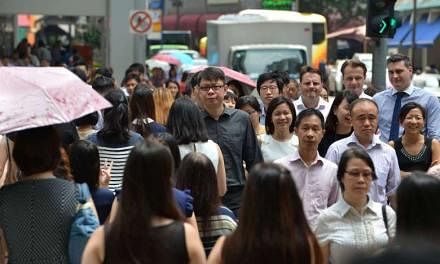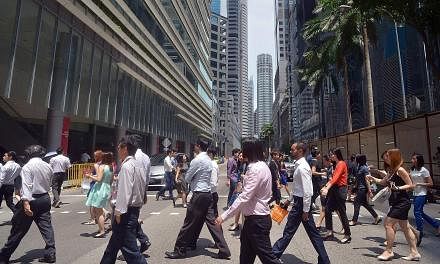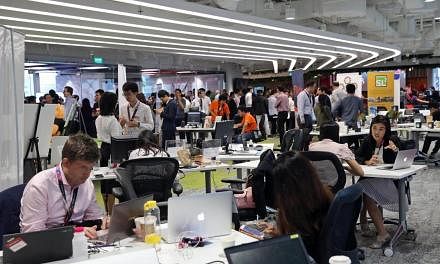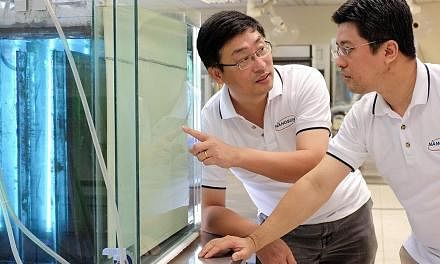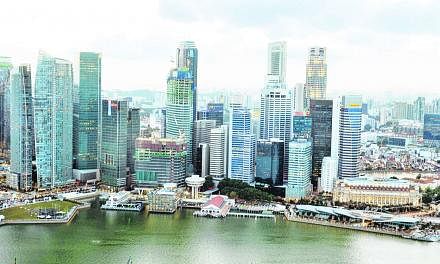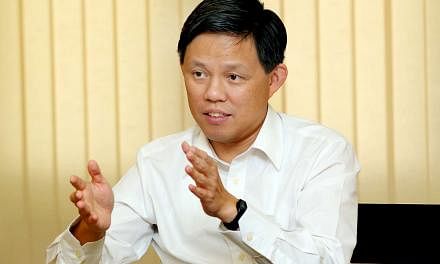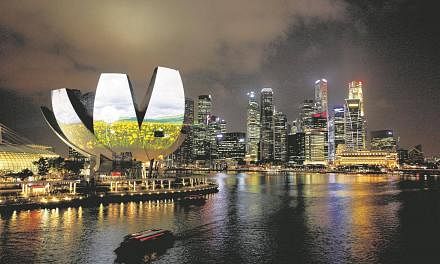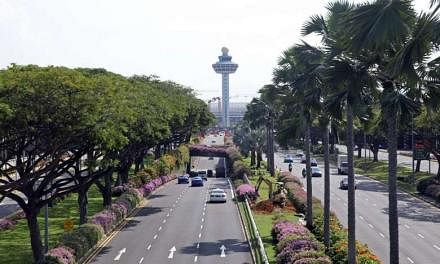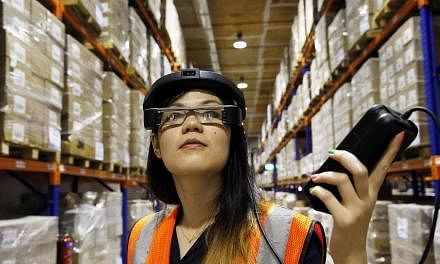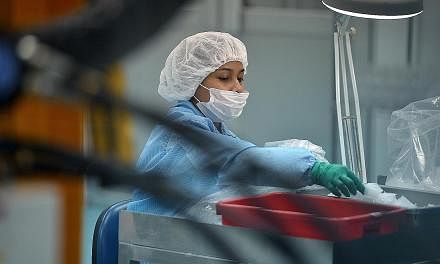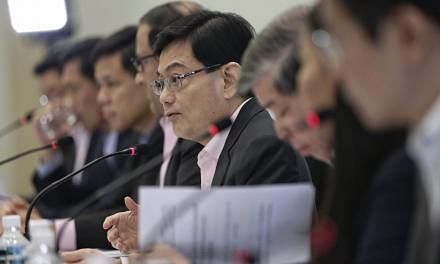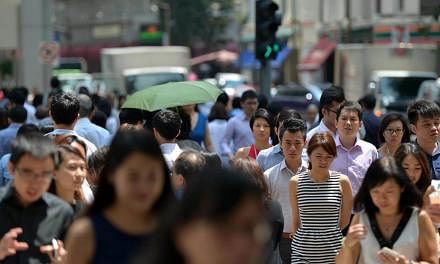While strategies to grow Singapore's economy have been set out, the key lies in executing those plans, said Trade and Industry (Industry) Minister S. Iswaran.
The high-powered committee, which Mr Iswaran co-chairs, yesterday unveiled seven strategies to drive economic growth in the next five to 10 years, from keeping the Republic open and connected to the world, to ensuring that workers acquire deeper skills.
Speaking at a media conference yesterday, Mr Iswaran said: "It is not just about the novelty of the ideas we come up with, but our ability to execute and achieve the outcomes we set out to achieve. And that is really going to be a key part of the work as we go forward."
He emphasised the need for the Government to collaborate with key partners, including trade associations, unions, businesses, workers and research institutions.
The ability to work together has been the "defining feature" of how Singapore has differentiated itself thus far, he added.
Finance Minister Heng Swee Keat, the other co-chairman, said the CFE aims to set out the direction and broad strategy for Singapore's future, rather than produce a detailed road map. This is because it is much harder to predict with certainty which sectors will do well, he said, given the complex and rapidly changing global environment.
The CFE's strategies thus revolve around developing "the agility and adaptability to cope with change and to seize new opportunities", Mr Heng said.
"This will prepare our businesses to create and seize opportunities from open and connected Singapore, create new ways for us to work together to transform and overcome challenges, and keep us relevant," he added.
But for the committee's vision to be realised, both the Government and individual enterprises have to shift mindsets and be willing to bear more risk, Mr Iswaran said.
"We are going to have to be bold enough to try out new ideas. Some will succeed, some may not, in which case we will have to course-correct and be prepared to reallocate the resources to areas that work," he said.
The committee projects that its strategies will help Singapore's economy grow by 2 per cent to 3 per cent a year on average, which it said exceeds the performance of most advanced economies.
Asked why the expected gross domestic product growth is lower than the 3 per cent to 5 per cent target set in the 2010 Economic Strategies Committee report, Mr Heng said the global environment today is very different.
Growth has slowed throughout the world, he said, adding that the lower growth numbers also reflect slower workforce growth due to an ageing population.
Mr Iswaran said 2 per cent to 3 per cent growth is not unlike what other economies in a similar stage of development achieve.
"What we need to also look at is what it translates into in terms of career opportunities and wage progression possibilities for Singaporeans," he said.
"That is where our initiatives in terms of productivity and going more regional and therefore creating new and different kinds of jobs are going to be very relevant."
Minister for Education (Higher Education and Skills) Ong Ye Kung, who also sits on the committee, noted that Asia is the region set to see the highest growth.
The SkillsFuture programme will help workers develop the capabilities needed to work abroad, he said.
Mr Heng noted that the CFE's recommendations are ultimately meant to prepare Singapore's people and businesses to navigate an uncharted path.
While doing so will not be easy, he said: "To be able to stay open and connected, and develop the deep capabilities both at an individual as well as corporate level, will help us ensure that we build good opportunities here."
The committee was also asked about how the Government balances the need for regulation and being open to technological disruption.
New laws were passed in Parliament earlier this week to regulate private-hire operators and make short-term home rentals illegal.
National Development Minister and CFE member Lawrence Wong said being open to disruption and change does not equate to less regulation.
He said: "It is not about less but smarter, more effective regulation - regulations that are pro-business but at the same time balance the very legitimate needs of different stakeholders, including Singaporeans."
During a media conference yesterday, members of the Committee on the Future Economy gave their take on the key ideas in the report and the trends they seek to address.
RAPID PACE OF CHANGE
Five years ago, trying to think about a regulation for Uber was not relevant. Suddenly, five years later, having something for Uber, you are already behind the curve... The port industry is similar. Strategies five years ago are simply redundant. Compared to today, we must be prepared to question whether we are capable.
That, I think, is the gist of this report, looking at how we do things, being open, connected. Capability might be a simple word, but it is hard to achieve and many things need to be done to move up together. Are we willing, are our people ready, and can we do it fast enough?
MR TAN CHONG MENG, group CEO, PSA International, co-chairman of sub-committee on the future city.
SINGAPORE'S STRENGTHS
We are always known for moving fast, seizing opportunities. The sheer determination of our leaders and our people and enterprises (in our early years), and the ability to seize opportunity and move rapidly, made us distinct.
The other key is individuals who, in an increasingly volatile, uncertain, complex and ambiguous world, have to also demonstrate agility in understanding and learning new skills. Using that, creating value, relearning, readapting to the environment.
MR BILL CHANG, CEO group enterprise, Singtel, co-chairman of sub-committee on future jobs and skills.
DIGITAL FUTURE
The whole idea of the digital economy is transforming everything... In data, for example, we are not just talking e-commerce any more, but pushing the envelope to thinking about how do you use data to collect very personalised information that is relevant in real time, pushing the envelope on that.
A second theme that we hear a lot from clients we work with, and especially in this committee, is the need for agility to invest in human capital.
MS MARIAM JAAFAR, partner and managing director (Singapore), The Boston Consulting Group, co-chairman of sub-committee on future connectivity.
FIVE WEDDINGS AND A FUNERAL
In the shipping industry, last year, we went through what we call five weddings and one funeral. Five weddings: The two Chinese lines merged together, our national line was sold to a French company, we have our Middle East line sold to Germans, three Japanese lines merged together and the German line Hamburg Sued was sold to Maersk. And the funeral was Hanjin.
We have never seen such a bad market but yet, I would say today, most shipping lines should be profitable because of all these changes. The risks are now back to a more normal level, we also see that PSA had a good throughput for December... In times like this, we mustn't lose focus, we must be confident.
MR TEO SIONG SENG, chairman, Singapore Business Federation and managing director, Pacific International Lines, co-chairman of sub-committee on future corporate capabilities and innovation.
